Eddie Dressler and the Jewish Funeral Business
Funeral director Eddie Dressler talks plots, prices, and why it’s so hard to get a granite headstone right now.
Can you imagine a good Jewish boy becoming a Jewish funeral director? Well, that’s what Edward Dressler became. Dressler is the president and owner of Dressler’s Jewish Funeral Care, the only Jewish funeral business in Atlanta. I spent time with Eddie recently to understand his business. (I call him Eddie because I’ve known him a long time; he grew up with my children.)
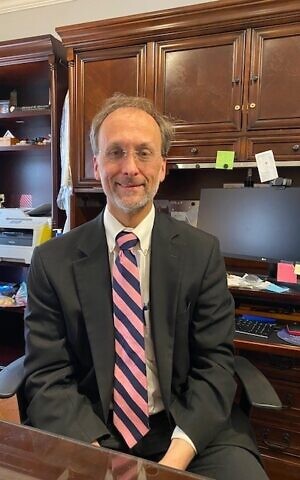
Dressler entered the business in a rather straightforward way. “I attended Drexel University in Philadelphia, and my dad’s cousin was in the funeral business in New York,” he recalled. “While in college, I started working for him parttime, and drove 2 hours to New York on the weekends for the work. This led to working at other funeral homes, so I gradually learned the business.”
After finishing college, Dressler attended a funeral school in Atlanta for a year and a half, worked in the funeral business as an apprentice for another year and a half, and then passed the exam to obtain his funeral license. He then worked for a funeral home for another four years, and in 2001 he convinced a bank to loan him the money to buy the house that became his funeral business. As Dressler says, “School can teach you the basics of the business, but there are so many Jewish customs and so many details to the business that you only can only learn it by being hands-on.”
I asked Dressler when his business begins and ends. “A lot of people approach us to preplan a funeral for either themselves or a close relative,” he said. “They do that to make proper arrangements for the funeral. The family may even pay for the funeral in advance of a death with that money being kept in an individual escrow account. The family has complete control of the money.”
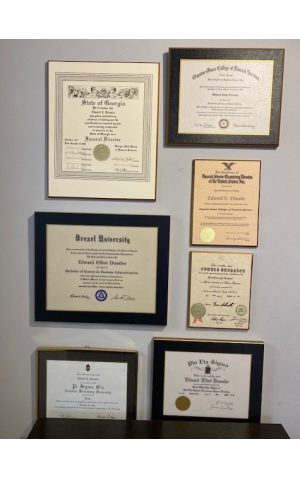
Regarding a funeral plan, Dressler says, “We discuss where the burial ground will be, its cost — if required or requested — the need for a tahara to prepare the body for burial, the Chevra Kadisha group that will perform the tahara, or our own staff prepares the body in the manner requested, arranging for people who can watch the body until burial, the rabbi that will perform the burial service, the selection of the coffin and any transportation that will be needed if the burial is outside Atlanta.” He adds that Dressler’s can handle a military funeral, including honors and burial in any military cemetery, including in North Georgia or Arlington National Cemetery.
When a person dies, the hospital, nursing care facility, or hospice can release the body to the funeral home, but a death at home without hospice requires the medical examiner’s approval. In some cases, an autopsy is performed to verify whether there has been foul play. For each funeral, the staff removes personal items and returns them to the family at their request. About 90 percent have a standard burial and about 10 percent have the remains cremated. For a regular burial, 70 percent have a tahara, and 30 percent don’t think it is necessary.
“We handle 200 burials in Atlanta, and send another 80 outside of Atlanta, usually by plane,” Dressler said. “About 5-6 times a year, the body is shipped to Israel, where there is no coffin; only a shroud is used.”
While Dressler’s offers wood caskets (which contain no metal), about 50 percent of their customers select a traditional plain pine casket, 15 percent choose a more ornate casket, and 35 percent choose something a little more finished than just plain wood.
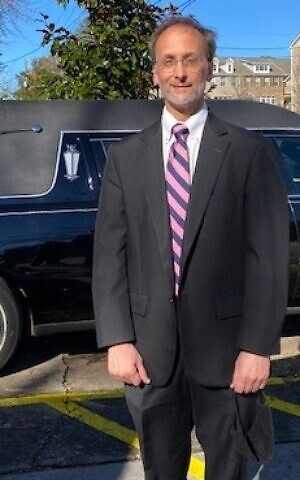
Then there’s the death certificate. Dressler says, “This is an important issue, and it has to be done correctly. It requires personal information, the social security number, the county of death, and must be signed by a doctor. It has to be absolutely accurate.”
A typical funeral will cost $8,000 including incidentals, and the cemetery usually charges from $6,000 to $12,000, excluding the headstone. The cemetery’s price includes purchasing the plot, digging the grave and installing a grave box to hold the coffin. Dressler’s also includes a page on their website for the deceased, which may include the funeral and shiva information, Zoom link, and a photo.
The headstone can run anywhere from $1,500 to $3,000. Lately, Dressler has had problems sourcing headstones for a few reasons. Because of COVID, there’s been a 20 percent increase in the number of deaths nationwide, and Jews are no exception. The granite comes from a quarry in Elberton, Ga., and often there aren’t enough staff on hand to do the work.
Each headstone needs a design, an inscription, and then the inscription process has to be proofed. Once approved, which can take time with the family’s involvement, the manufacturing process can begin. Nowadays, this can take six to eight months instead of the usual three. All of which has meant a significant delay in obtaining headstones.
On top of this, each cemetery has its own rules regarding headstones, and different sections in the cemetery may have different rules, too. There may be size and other restrictions. Some cemetery sections, for example, require the headstone to be flush with the ground, using a bronze plaque.
As a result of the pandemic, Dressler’s now streams its funerals over Zoom, with authorized family approval. The recordings are made available to authorized family members and, with their permission, posted on Dressler’s website for public viewing. Dressler also owns Fischer Funeral Care, a totally separate, nondenominational funeral home located next door to Dressler’s. It has a chapel that they share, which can handle up to 150 people for a funeral service.
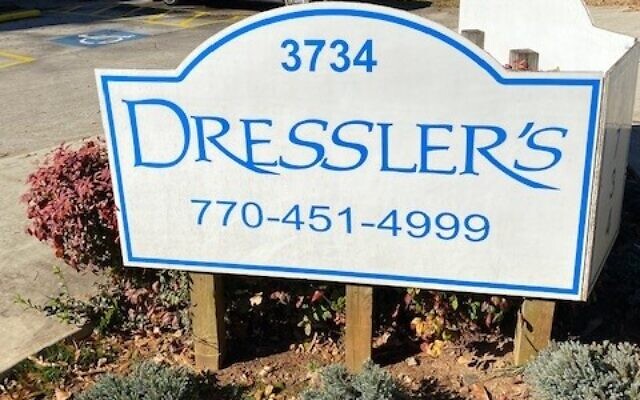
When it comes to marketing, things can be touchy, so Dressler uses a soft sell, speaking to staff at retirement centers, hospice locations and publishing a few small advertisements, such as in the Atlanta Jewish Times. Often, business comes through recommendations from the Jewish community, including synagogues and by word of mouth from previous customers.
The funeral business is complicated, Dressler says. It’s a very physical business. Dealing with family issues can be trying. In this sense, Dressler has the right character for the job: a gentle, sensitive personality with lots of experience in dealing with family and friends who are grieving. The staff is trained to be knowledgeable and kind.
The best strategy, Dressler says, is to do a good job, remain as quiet as possible and deal with each person’s requests.
- Allen H. Lipis
- News
- Local
- Dressler's Jewish Funeral Care
- Atlanta Jewish Times
- Funeral director
- Eddie Dressler
- plots
- prices
- granite headstone
- gravestones
- pandemic
- retirement centers
- hospice locations
- advertisements
- Drexel University
- funeral school
- Atlanta
- apprentice
- Jewish funeral business
- funeral business
- funeral homes
- funeral license
- preplan a funeral
- funeral
- funeral plan
- Military Funeral
- escrow account
- tahara
- Chevra Kadisha
- military cemetery
- Arlington National Cemetery
- hospital
- nursing care facility
- Hospice
- autopsy
- burial
- cremated
- Coffin
- Israel
- wood caskets
- Ornate Casket
- pine casket
- death certificate
- social security number
- county of death
- Doctor
- shiva information
- Zoom link
- COVID
- Fischer Funeral Care
- jewish community
- Synagogues
- Chapel



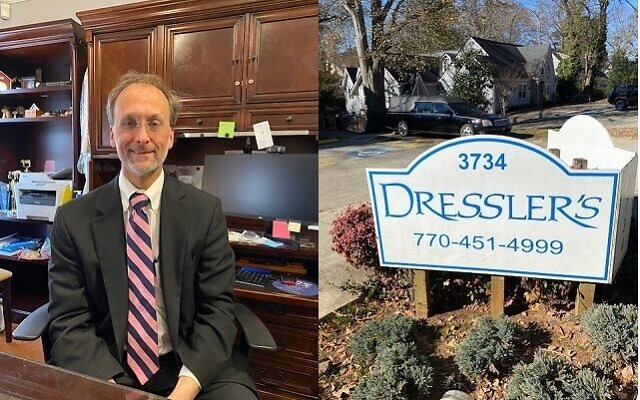
comments